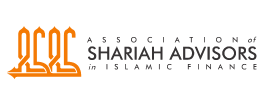About the Challenge
The MIFC Global Impact Challenge (MGIC) is designed to source and spotlight innovative solutions that embed fundamental Shariah principles or enables wider application of and access to Islamic Finance, catalysing change that generates positive and sustainable impact to the economy, community and environment. The strategic integration of Islamic finance and pioneering solutions will drive the advancement of ethical and sustainable financial ecosystems while nurturing a pipeline of changemakers and solution providers committed to ethical and impactful finance.
Themed ‘Accelerating Innovation. Empowering Change.’, it reflects our commitment to turning bold ideas into real-world impact. By supporting forward-thinking solutions, we aim to drive meaningful progress in both the financial sector and the wider community.
The competition invites bold, scalable, and Shariah-aligned solutions that leverage finance, technology, grassroots innovation or any transformative, inventive approaches to develop and pitch creative financial approaches to solve two urgent challenges:
Challenge Track 1:
Advancing economic empowerment and social sustainability
Scaling Islamic Finance solutions for a climate-resilient future
The application window for the competition starts on 18 July 2025 and culminate at an award ceremony during the Global Islamic Finance Forum 2025 (GIFF) on 13 October 2025.
FOCUS AREAS
Your Title Goes Here
Your content goes here. Edit or remove this text inline or in the module Content settings. You can also style every aspect of this content in the module Design settings and even apply custom CSS to this text in the module Advanced settings.
Challenge Track 1: Advancing economic empowerment and social sustainability
In an era of rapid globalization and technological advancements, economic empowerment and social sustainability remain crucial pillars for building equitable and resilient societies. While economic growth has generated opportunities for many, disparities in access to financial resources, education, and sustainable livelihoods continue to hinder progress for the unserved and underserved.
Problem statements
- How can we create accessible and affordable financing and protection options for marginalized and low-income communities to preserve basic needs such as health, homes and education?
- What affordable financial solutions can we develop to help sustain business ventures of microentrepreneurs and small business communities?
- How can we design solutions to effectively help and encourage low-income communities to save towards ensuring long-term financial resilience?
- How might we ensure that Islamic social finance is efficiently mobilized and strategically deployed to maximize its impact on poverty reduction, financial inclusion and sustainable development?
- How can we ensure that all ages of society have access to necessary digital and literacy skills to safeguard against fraud, scams and cyber risks, and make informed financial decisions?
Challenge Track 2: Scaling Islamic Finance solutions for a climate-resilient future
-
Climate change disproportionately affects those least equipped to respond such as smallholder farmers in climate challenged regions, women-led microenterprises in rural areas, coastal families, and displaced populations. Many remain excluded from financial protection and credit systems, widening the climate inequality gap.
-
As climate threats accelerate, financial institutions are confronted with increasing challenges such as physical asset degradation due to extreme weather events, unavailability of reliable data and tools for climate risk assessment and management, regulatory pressures to align with global sustainability standards, and reputational risks from failing to meet ethical and environmental expectations. Failure to effectively address such challenges could significantly compromise the stability and resilience of financial institutions, including Islamic financial institutions.
Problem statements
- What scalable and affordable Shariah-compliant financial solutions can we develop to mitigate risks and build financial resilience of climate-vulnerable communities such as agricultural, coastal/island and flood-prone urban communities?
- How can we creatively leverage Islamic social finance to provide disaster relief to communities affected by climate-related crisis?
- How can we develop climate risk tools and models that help financial institutions, including Islamic financial institutions better predict and mitigate impact, improve risk assessment and pricing as well as underwriting and claims processing?
- How can we simplify and streamline climate risk disclosures and ease compliance with different standards, regulations and taxonomies for financial institutions, including Islamic financial institutions?
- How can we ease the provision and affordability of green financing and sustainability-linked protection by financial institutions, including Islamic financial institutions to SMEs?
REWARDS & BENEFITS
CASH PRIZES
Up to USD 60,000 in Cash Prizes
Awarded to up to four (4) winners – with up to two (2) winners per challenge track.
GUIDANCE TO SCALE & EXPAND
Support to Scale in Global Islamic Finance Market
Winners will receive support to scale and expand their solutions or businesses for up to 12 months from the award date. This includes access to expert guidance and mentorship, as well as support in ensuring Shariah alignment from experts.

Congratulations to all winner
CO-ORGANISERS
IN SUPPORT OF
GLOBAL PARTNERS
KNOWLEDGE PARTNER
ECOSYSTEM PARTNERS
MEDIA PARTNERS












